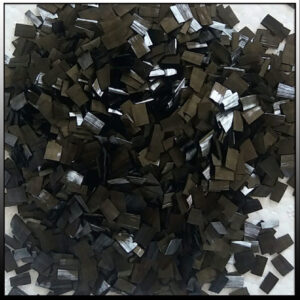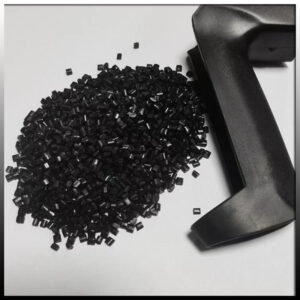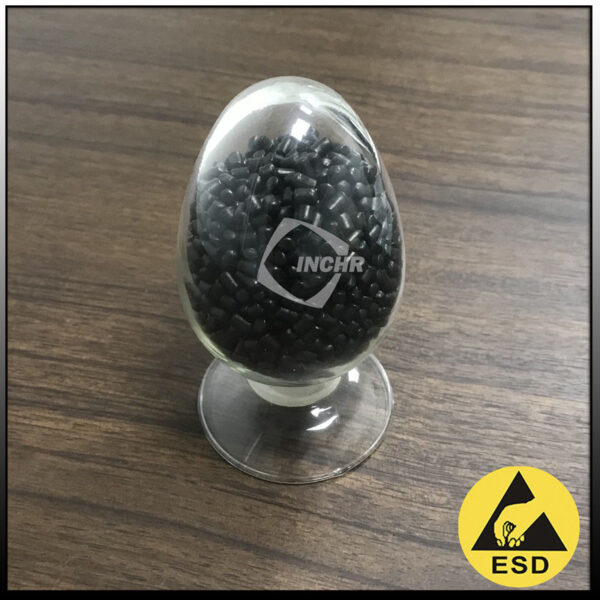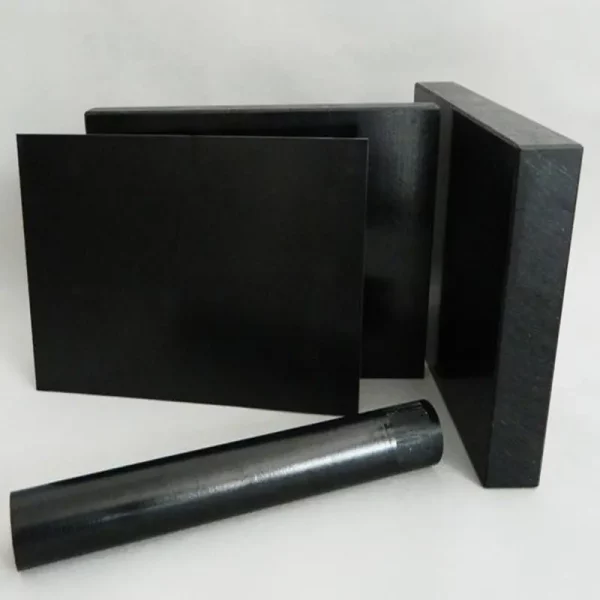Carbon fiber reinforced thermoplastic is a high-performance raw material that adds carbon fiber to the base material to improve performance. INCHR offers a range of carbon fiber reinforced plastics (CFRP), and base resins for various applications, including PP, PC, ABS, nylon 6, nylon 66, nylon 610, PBT, and PPS resins.
The length of the reinforced carbon fiber is optional
The amount of carbon fiber added in carbon fiber reinforced thermoplastics ranges from 10% to 40%. Different carbon fiber lengths are mainly used in different molding processes and product requirements so that carbon fiber reinforced thermoplastic materials can achieve different strengths and moduli. INCHR carbon fiber reinforced raw materials are divided into short carbon fiber reinforced plastics and long carbon fiber reinforced plastics according to the length of carbon fibers. Short carbon fiber reinforced plastic is a carbon fiber reinforced thermoplastic mainly used for injection molding. It has the characteristics of lightweight, high strength and stiffness, high creep and fatigue resistance, good wear resistance and sliding performance, low molding shrinkage, small linear expansion coefficient, excellent electrical conductivity, and good electromagnetic shielding performance. At present, the fiber length of INCHR short carbon fiber reinforced plastic is about 4-6mm. Long carbon fiber reinforced plastic contains a carbon fiber with a longer length, which basically maintains the original length of the fiber. This compound is a composite of carbon fiber and flexible heterogeneous fiber, which improves the impact resistance while maintaining the high strength and high stiffness of carbon fiber. Generally, the impact resistance of carbon fiber reinforced thermoplastic CFRP depends on the length of carbon fiber. The longer the fiber length, the higher the impact resistance.

Introduction of INCHR@Carbon fiber reinforced plastic injection molding | Product Catalog
Carbon fiber reinforced plastics have the characteristics of repeatable processing, good toughness, and strong impact resistance. After compounding with carbon fiber, thermoplastic resin-based carbon fiber reinforced composite materials have good toughness and impact resistance while maintaining high strength and stiffness, and can be processed by molding processes such as injection molding and extrusion, with high production efficiency. Compared with thermosetting resin-based carbon fiber reinforced composite materials, thermoplastic resin-based carbon fiber reinforced composite materials have better recycling and reuse.

Compared with common carbon fiber reinforced plastic injection molding, carbon fiber reinforced PP has good heat resistance, minimum density, good chemical stability, and resistance to most chemicals. Compared with most engineering raw materials injection molding, carbon fiber reinforced PC features high strength, good toughness, and better temperature resistance. Carbon fiber reinforced plastic injection molding ABS has better overall performance. Its biggest advantages are good fluidity, easy processing, and good formability. Carbon fiber reinforced nylon has good wear resistance and has a certain heat resistance and thermal stability. Carbon fiber reinforced nylon 610 has good mechanical properties and wear resistance. Its fatigue resistance is better. Carbon fiber reinforced plastic injection molding PBT has excellent mechanical properties. Carbon fiber reinforced plastic injection molding PPS has excellent heat resistance and good chemical resistance. The difference between the material and other carbon fiber reinforced plastic injection molding is its excellent flame-retardant properties.
Advantages of INCHR@Carbon fiber reinforced plastic injection molding
Improve strength and stiffness: Significantly enhance the mechanical properties of reins.
Weight reduction: Reduce weight without sacrificing performance.
Improve corrosion resistance: Make the material more resistant to chemical corrosion. Most carbon fiber reinforced resins have excellent chemical corrosion resistance.
Good thermal stability: Can maintain performance at higher temperatures.
Excellent wear resistance: Extend the service life of the material.
Low molding shrinkage and low linear expansion coefficient: Ensure high dimensional accuracy.
Strong conductivity: Excellent electrical conductivity and electromagnetic shielding performance.
Wide application areas: Carbon fiber reinforced plastic resins are commonly used in aerospace, automobiles, smartphones, sports equipment, and other fields to meet the demand for high-performance materials.


